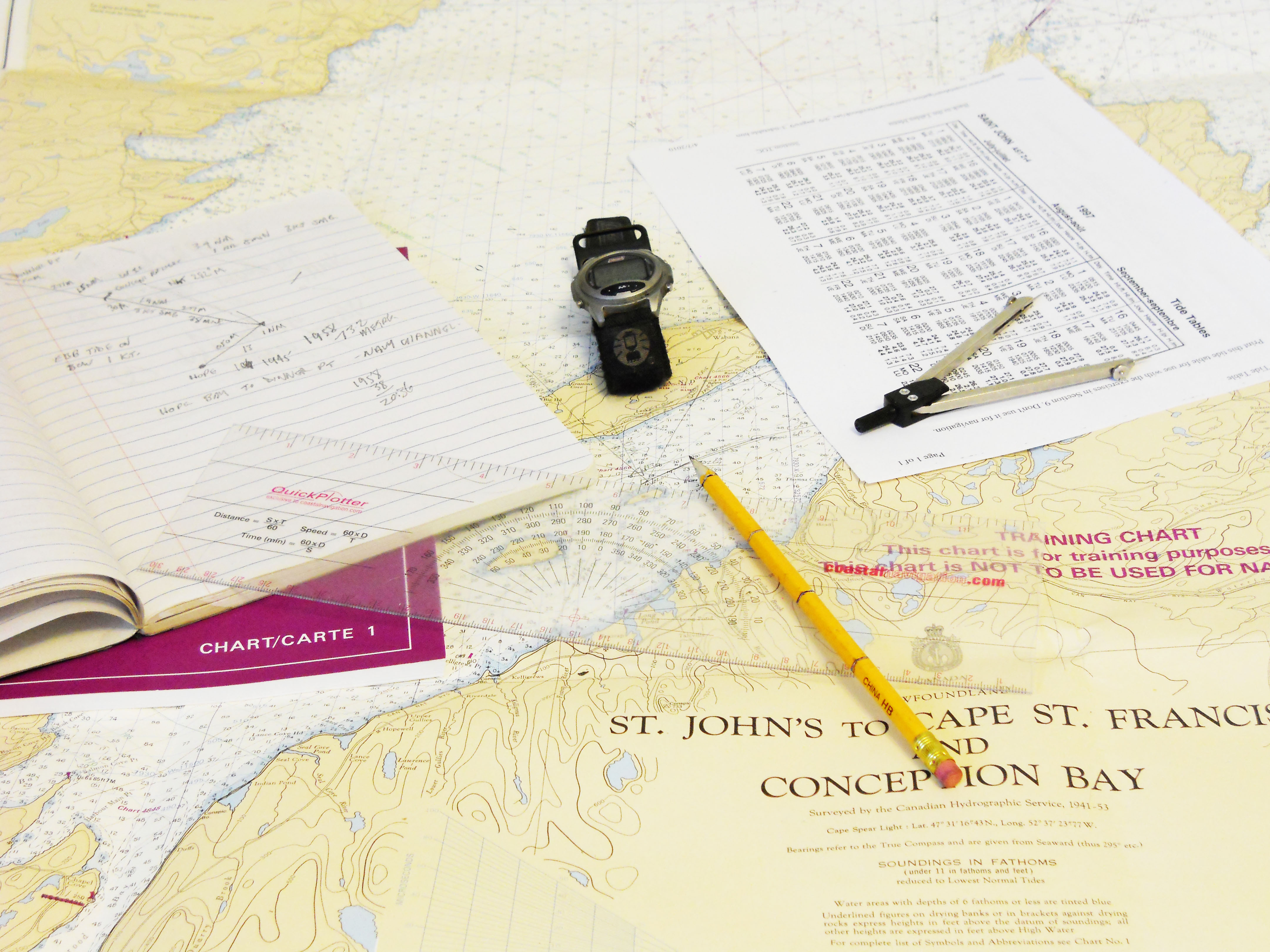How much do you rely on GPS, and maps on your phone to navigate? Once upon a time, we didn’t even use paper maps very much. We relied on environmental clues and simple instruments.
I read an excerpt from a book by John Huth called The Lost Art of Finding Our Way and it got me thinking about this topic again.
Huth was kayaking in Nantucket Sound in 2003 when a fogbank rolled in and disoriented him. He didn’t panic because he knew some basic navigation skills and returned safely to shore. But he found out that only half a mile away, two college students in that fog mistakenly turned their kayaks out to sea and died. That day got him into exploring the principles of navigation, from ancient times to modern.
In his book, we learn about how the Vikings used a sunstone to detect the polarization of sunlight. Arab traders learned to sail into the wind. Pacific Islanders used underwater lightning and were able to “read” waves to guide their explorations.
All of us – land dwellers and sea-goers – have lost the ability to make close observations of the sun and moon, tides and ocean currents and weather and atmospheric effects in order to read the planet and find our way.
Lavishly illustrated, Huth’s account of the cultures of navigation gets you into a narrative that is a scientific treatise, personal travelogue, and also a re-creation of navigational history. His premise is that by seeing through the eyes of past voyagers, we bring our own world into sharper view.
An article I found online asks, “Do our brains pay a price for GPS?” There’s no doubt that GPS is a useful technology, but does using it interfere with our ability to do “mental mapping?”
Mental mapping and spatial memory are what allow us to remember where we have put things in our homes. It helps you to lay out a garden, plan a trip, pack a suitcase, arrange furniture, navigate your neighborhood and an office building.
Can you give clear directions to someone to get to a particular place in your hometown? When I was a kid riding my bicycle all summer, I knew almost every street in my hometown by name and location. Now, I don’t even know all the streets within a mile of my house.
John Huth is a professor and a high-energy physicist, and he teaches a course in “Primitive Navigation” about the rudiments of the analog methods of wayfinding using sun, stars, tides, weather and wind. He certainly is not anti-technology. He is an experimental particle physicist and was involved in the discovery of both the top quark and the Higgs boson, but he questions our reliance on smartphones and GPS.
I ordered his book, which sounds quite encyclopedic in its coverage, touching on astronomy, meteorology, oceanography, and ethnography and telling the ways of early navigators whose lives depended on paying close attention to the environment around them.
Reviewers of the book point out that he is not interested in junking the technology, but relearning the old ways. One reason is that it’s still unclear what losing those old skills has done to our modern brain.
Many of my posts here are about maintaining touch with our natural world, and I would agree that losing our visceral connection to the natural world is a tragic loss with broad repercussions personally and globally.
I doubt that I would find many people of any age who know what “dead reckoning” means or how to use a map with a compass. Would you be able to point out major stars in the night sky and use them to find your way?
I used to teach classes in map and compass and basic land navigation at the Pequest Education Center in New Jersey, but I don’t see any offered anymore. Maybe it’s time to do it again. But are people interested, or are they satisfied with the tech doing the work for them?


One thought on “Finding Your Way”